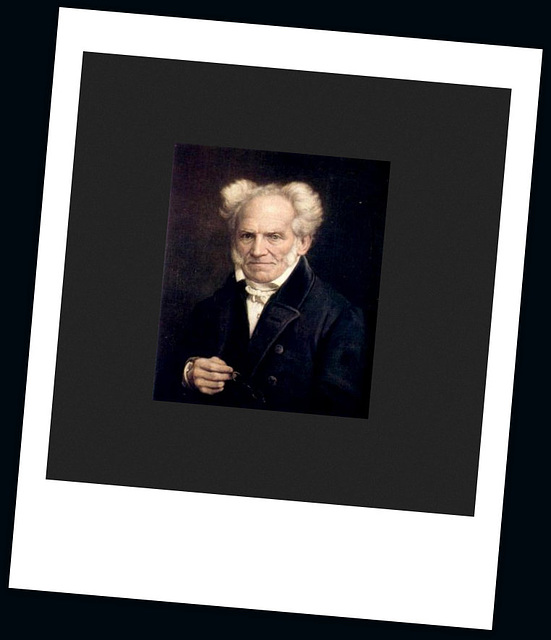- Keyboard shortcuts:
Jump to top
RSS feed- Latest comments - Subscribe to the comment feeds of this photo
- ipernity © 2007-2024
- Help & Contact
|
Club news
|
About ipernity
|
History |
ipernity Club & Prices |
Guide of good conduct
Donate | Group guidelines | Privacy policy | Terms of use | Statutes | In memoria -
Facebook
Twitter



1. WHAT WE HAVE. Material goods are a will-o’-the-wisp. Schopenhauer argues elegantly that the accumulation of wealth and goods is endless and unsatisfying: the more we possess, the more our claims multiply. Wealth is like seawater; the more you drink, the thirstier we become. In the end, we don’t have our goods – they have us.
2. WHAT WE REPRESENT IN THE EYES OF OTHERS. Reputation is as evanescent as material wealth. Schopenhauer writes, “Half our worries and anxieties have arisen from our concern about the opinions of others…we must extract this thorn from our flesh. So powerful is the urge to create a good appearance that some prisoners have gone to their execution with their clothing and final gestures foremost in their thoughts. The opinion of others is a phantasm that may alter at any moment, opinions hang by a thread and make us slaves to what others think or, worse, to what they appear to think – for we can never know what they actually think.
3. WHAT WE ARE. It is only what we are that truly matters. A good conscience, Schopenhauer says, means more than a good reputation. Our greatest goal should be good health and intellectual wealth, which lead to an inexhaustible supply of ideas, independence, and moral life. Inner equanimity stems from knowing that it is not things that disturb us, but our interpretations of things.
~ Page 112-113 “Staring at the Sun” ~ Author Irvin D. Yalom
Sign-in to write a comment.